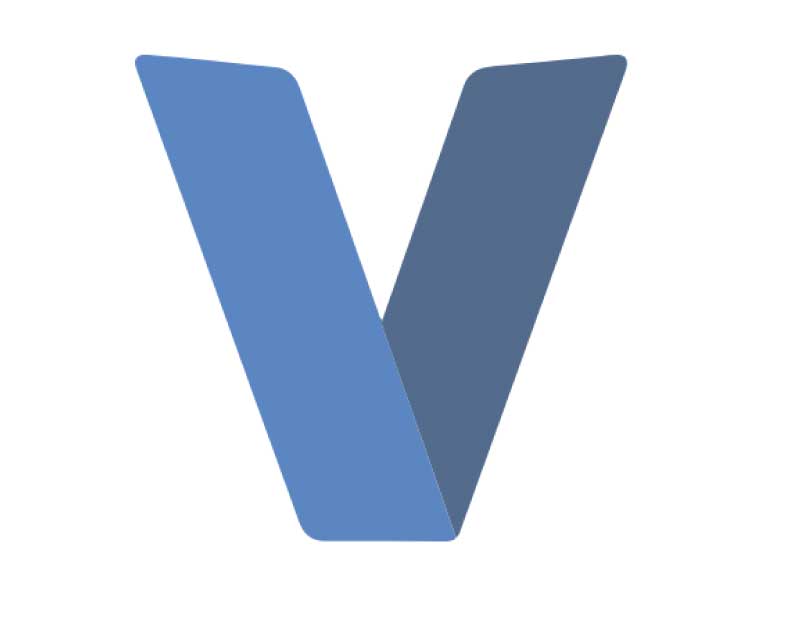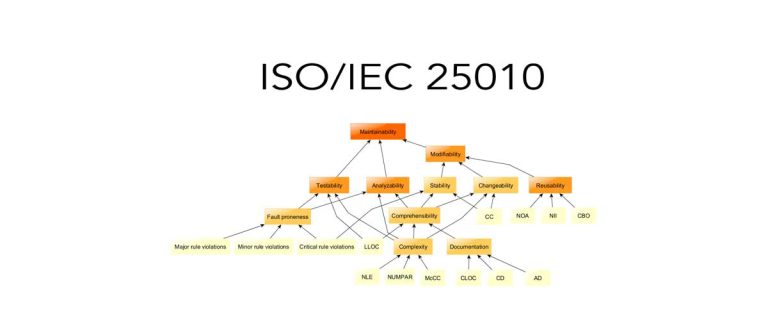V Programming Language
Programming languages form the backbone of technology. In this article, we introduce the V programming language, a new programming language that was first released in 2019. As with other programming languages, V (sometimes referred to as VLang) was created to solve specific computer-related problems. Some of the key goals in the creation of V were eliminating common sources of bugs and errors in system programming, providing a fast and efficient development process, and making it easy to build large and complex software systems.
V Programming Language Quick Facts
- Name: V
- Created by: Alex Medvednikov
- Initial release: 2019
- Typing: Static, strong typing
- Paradigms: Imperative, functional, object-oriented
- Platforms: Linux, macOS, Windows, FreeBSD
- License: MIT License
- Website: vlang.io
- V is influenced by Go, Rust, and Oberon.
- V has a built-in package manager called VPM.
- V has a module system that allows developers to organize their code into logical units.
- V supports lightweight threads, also known as coroutines, and has built-in support for channels for inter-thread communication.
- V compiles to native machine code and has no runtime exceptions or garbage collection.
- V has a simple and concise syntax, with a focus on readability and ease of use.
- V is suitable for system programming, web development, and game development.
- V has been used by companies such as Apple, Twitch, and VMware.
The V programming language is a statically typed, compiled, systems programming language that aims to provide simplicity, safety, and speed. The language was created by Alex Medvednikov and was first released in 2019. V is open-source and available on various platforms, including Linux, macOS, Windows, and FreeBSD.
V is designed to be easy to learn, use, and maintain, without sacrificing performance or safety. The language is strongly typed and has no runtime exceptions or garbage collection, which means that V programs are predictable, reliable, and efficient. In addition, V is a compiled language, which makes it faster than interpreted languages like Python or Ruby.
Syntax and Features of V Programming Language
The syntax of V programming language is similar to that of Go, which makes it easy for Go developers to switch to V. V has a simple and concise syntax, with a focus on readability and ease of use. V supports functions, closures, and anonymous functions, as well as arrays, maps, and structs.
V has several features that make it stand out from other system programming languages. For example, V has a built-in package manager, which makes it easy to manage dependencies and third-party libraries. In addition, V has a module system that allows developers to organize their code into logical units and avoid naming conflicts.
Another notable feature of V is its concurrency model. V supports lightweight threads, also known as coroutines, which allow developers to write concurrent code in a simple and efficient manner. V also has built-in support for channels, which are used for communication between threads.
Comparisons to Similar Programming Languages
The V programming language has been compared to several other system programming languages, including Go, Rust, and C++. Here are some of the key differences between V and these languages:
- Go: V has a simpler syntax than Go, and it compiles faster. V also has a better concurrency model, with support for coroutines and channels. However, Go has a larger community and more third-party libraries.
- Rust: V and Rust are both designed for systems programming, but Rust has a steeper learning curve than V. Rust is also more focused on safety and memory management, while V is more focused on simplicity and ease of use.
- C++: V is easier to learn than C++, and it has fewer features. However, V is faster to compile than C++, and it has a simpler syntax. C++ is more established and has a larger community, but it is also more complex and error-prone.
Strengths of the V Programming Language
The V programming language is suitable for a wide range of applications, including system programming, web development, and game development. Here are some examples of problems that V can solve:
- System programming: V can be used to develop operating systems, device drivers, and other low-level software. Its simplicity, safety, and speed make it well-suited for this kind of work.
- Web development: V has a built-in HTTP server and can be used to develop web applications. Its simplicity and ease of use make it a good choice for building small to medium-sized web applications.
How to Learn the V Programming Language
If you’re interested enough in the advantages provided by the V language that you want to learn how to program in V, here are some tips on learning the V language to help you add V to your development arsenal.
- Start with the official documentation: The V programming language has comprehensive official documentation that covers all aspects of the language. The documentation includes a getting started guide, a language reference, and examples. It’s a good idea to start with the getting started guide and work your way through the documentation.
- Try out the examples: The V documentation includes many examples of V code that demonstrate various aspects of the language. Try out these examples and experiment with them to see how they work. This will help you to get a feel for the language and its syntax.
- Practice writing code: The best way to learn a programming language is to practice writing code. Start by writing small programs and gradually work your way up to more complex ones. Try to solve problems that interest you or that are relevant to your work.
- Join the V community: The V programming language has an active community of developers who are willing to help and answer questions. Join the V community on Discord, Reddit, or other platforms, and ask for help when you need it. You can also share your code and get feedback from other developers.
- Read code written in V: Reading code written by other developers is a great way to learn new programming concepts and techniques. Look for open-source V projects on Github or other platforms and study the code. You can also contribute to these projects to gain more experience.
- Take online courses: There are several online courses and tutorials available that teach V programming language. Udemy, Pluralsight, and other platforms offer courses that cover various aspects of the language. Taking a course can help you to learn the language more quickly and effectively.
Learning V requires practice, experimentation, and a willingness to seek help when needed. By following these tips and being persistent, you can become proficient in V and start building your own projects using the language.
Career Opportunities for V Developers
If you’re interested in the V language as a way to advance in your career, here are some things that are helpful to know in regards to how gaining a knowledge of V affects your career opportunities.
Because V is a new programming language that is quickly gaining popularity, there is a growing demand for developers who have experience with the language. Here are some ways that proficiency in V can affect career opportunities:
- Job opportunities: Many companies are starting to adopt V for their projects, and there is a growing demand for developers who can program in the language. Being proficient in V can make you a desirable candidate for job openings that require knowledge of the language.
- High paying jobs: As V is a relatively new and niche programming language, there are not many developers who are proficient in it. This means that developers who have mastered the language can command high salaries and compensation packages.
- Consulting opportunities: As more companies start to use V, there will be a need for consultants who can help with the adoption and implementation of the language. Developers who are proficient in V can offer consulting services and command high fees.
- Career growth: Proficiency in V can help developers advance their careers by opening up new opportunities for leadership roles, technical expertise, and higher salaries.
- Entrepreneurship opportunities: As V is a general-purpose programming language that can be used for a wide variety of projects, developers who are proficient in the language can start their own businesses and develop their own software products.
V Jobs and Salaries
Since V is so new to the programming scene, there are not many jobs that specifically require knowledge of the language. However, there are some job postings that mention V as a desirable skill, and the salaries for these jobs can be quite high. Here are a few examples:
- Software Developer: Many software development companies are starting to adopt V for their projects, and there is a growing demand for developers who can program in the language. According to Glassdoor, the average salary for a software developer who knows V is around $105,000 per year in the United States.
- Blockchain Developer: V has some unique features that make it suitable for blockchain development. Some blockchain companies are starting to use V for their projects, and there is a growing demand for developers who can program in the language. According to Indeed, the average salary for a blockchain developer who knows V is around $120,000 per year in the United States.
- System Administrator: V can be used for system-level programming, and some system administration jobs require knowledge of the language. According to Glassdoor, the average salary for a system administrator who knows V is around $90,000 per year in the United States.
- Security Engineer: V has some features that make it suitable for security-related programming. Some security engineering jobs require knowledge of the language. According to Indeed, the average salary for a security engineer who knows V is around $130,000 per year in the United States.
These salaries are can vary depending on factors such as experience, location, and company. There may not be many job postings specifically mentioning V, but there are job postings that list it as a desirable skill alongside other programming languages.







